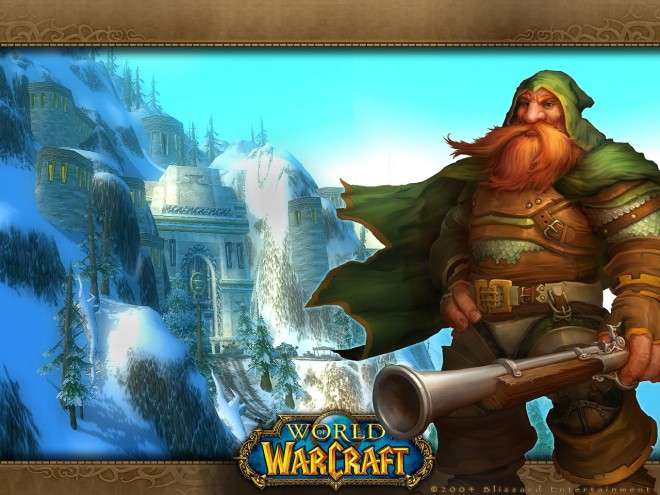
Review of: Graham, Lindsay T., and Samuel D. Gosling. “Personality Profiles Associated with Different Motivations for Playing World of Warcraft.” Cyberpsychology, Behavior & Social Networking 16, no. 3 (March 2013): 189-193. Business Source Premier, EBSCOhost (accessed May 21, 2014).
LEEROY JENKINS!
My father recently came to visit me at my college apartment. After we explained basic pleasantries I said, “I’ll be right back, I have to finish this game.” He nodded his head in acknowledgement sat and waited in the living room until I was done. After fifteen minutes or so I re-emerged from my room, and Dad asked, “Who were you talking to?” and I said “Jordan”. With a slightly bewildered look on his face I explained that we were playing online through the internet on my XBOX One console. He laughed and remarked, “I remember when plain old Pong was all we had.” As evident in this short story video games have come a long way since their genesis, and are more encompassing than ever. As mentioned before, one of the most influential changes in modern gaming is the advent of online play, and one of the world’s widest played online games is the Massively Multiplayer Online (MMO) game World of Warcraft (WoW). The University of Texas and two of its employees, Lindsay T. Graham and Samuel D. Gosling PhD, have performed a study testing the different motivations for playing WoW.
One of the issues tackled by Graham and Gosling pertains to online accountability and truthfulness. The study showed that players often portray themselves in WoW in their own “ideal” form instead of building a more accurate, real life looking, character. Ideal in respects to of course looks and demeanor, but also in action and personality (Graham et al. 2013). For example; a person who is often shy or timid in real life situations may take on the role of being an outspoken guild leader or someone who is normally boisterous in the real world may often choose to pick a more passive character role. Whereas people on social media sites (i.e. Facebook) are more likely to depict themselves how they truly are (Graham et al. 2013). I believe this raises an interesting psychological question. How likely are people to display themselves falsely when they know there is little to no chance of offline interaction? The more we can continue to understand the human mind and its behaviors, the more we as the human race progress and grow.
Another one of the focuses for Graham and Gosling was motivation for playing MMOs like WoW. Their studies found seven different motivators: social, escape, competition, coping, skill development, fantasy, and recreation. In direct correlation with these another interesting issue is raised based on two opposite personality traits: introverts and extraverts. Not surprising extraverts can often be categorized to be highly social players. There are exceptions to every rule, but extraverts are usually highly agreeable, open to suggestions, and overall good team players (Graham et al. 2013). This type of player can be especially important in WoW where high level play often requires teams of twenty five players and team-work is essential. Yet, introverts are quite different. The study showed that introverted players are often more focused on their own personal achievements and can be less team oriented. Graham and Gosling point out that one possible explanation for this that these more achievement based players do not just view the game as a simple leisure activity, but as more of a complex and serious hobby, and players who do not perceive the game as they do can just get in their way(Graham et al. 2013) . I believe this study is part of the study is the most important. To be able to further understand what motivates people to do certain things and take certain actions as limbs that far overstretch the bounds of just gaming. If we can understand what motivates people to perform certain crimes then there is a chance that such egregious acts can be reduced. If we can learn what can push a child to do better in school than our nation will inevitably become stronger. The more and more we can understand the human mind, the more that we once again can improve as the human race.
Games… what can the human race possibly learn from games? Games are a reflection of society, and have progressed and moved along just as society has. Understanding games is now about so much more than simply “passing Go” and collecting two hundred dollars, it is about understanding people and why we do many of the things that we do. For if a game like WoW can give us just a glimpse more of understanding, then it has served its purpose.